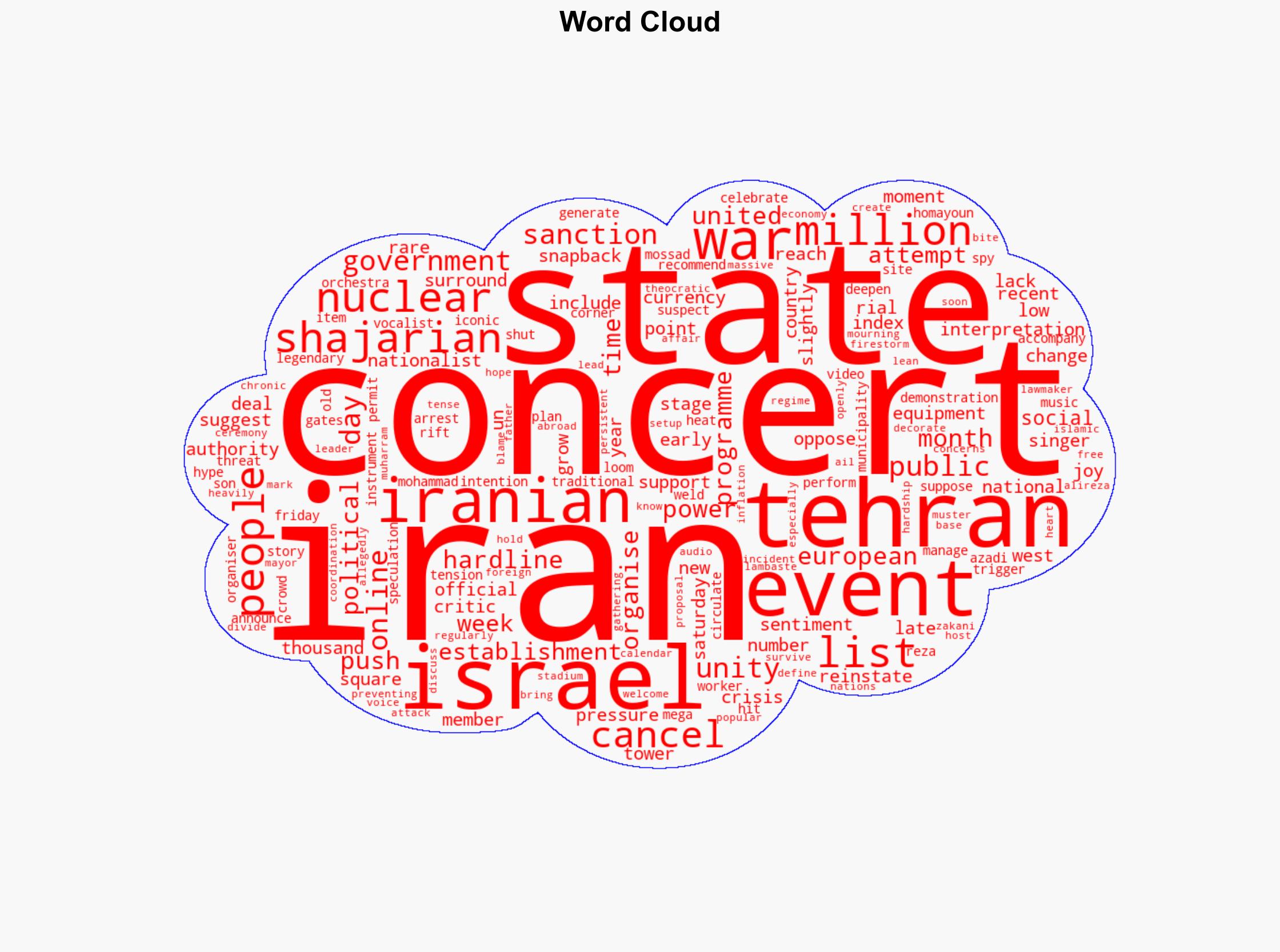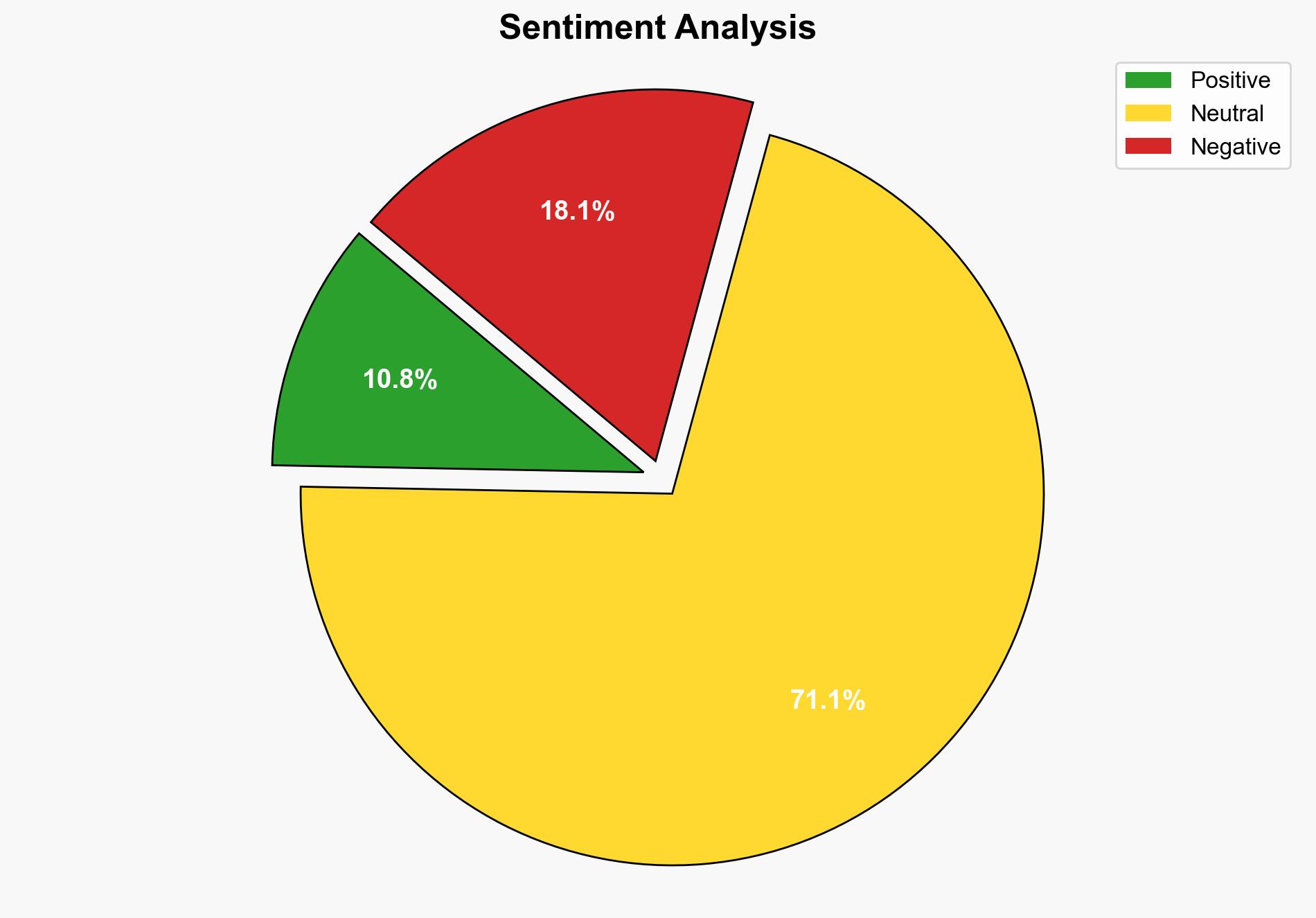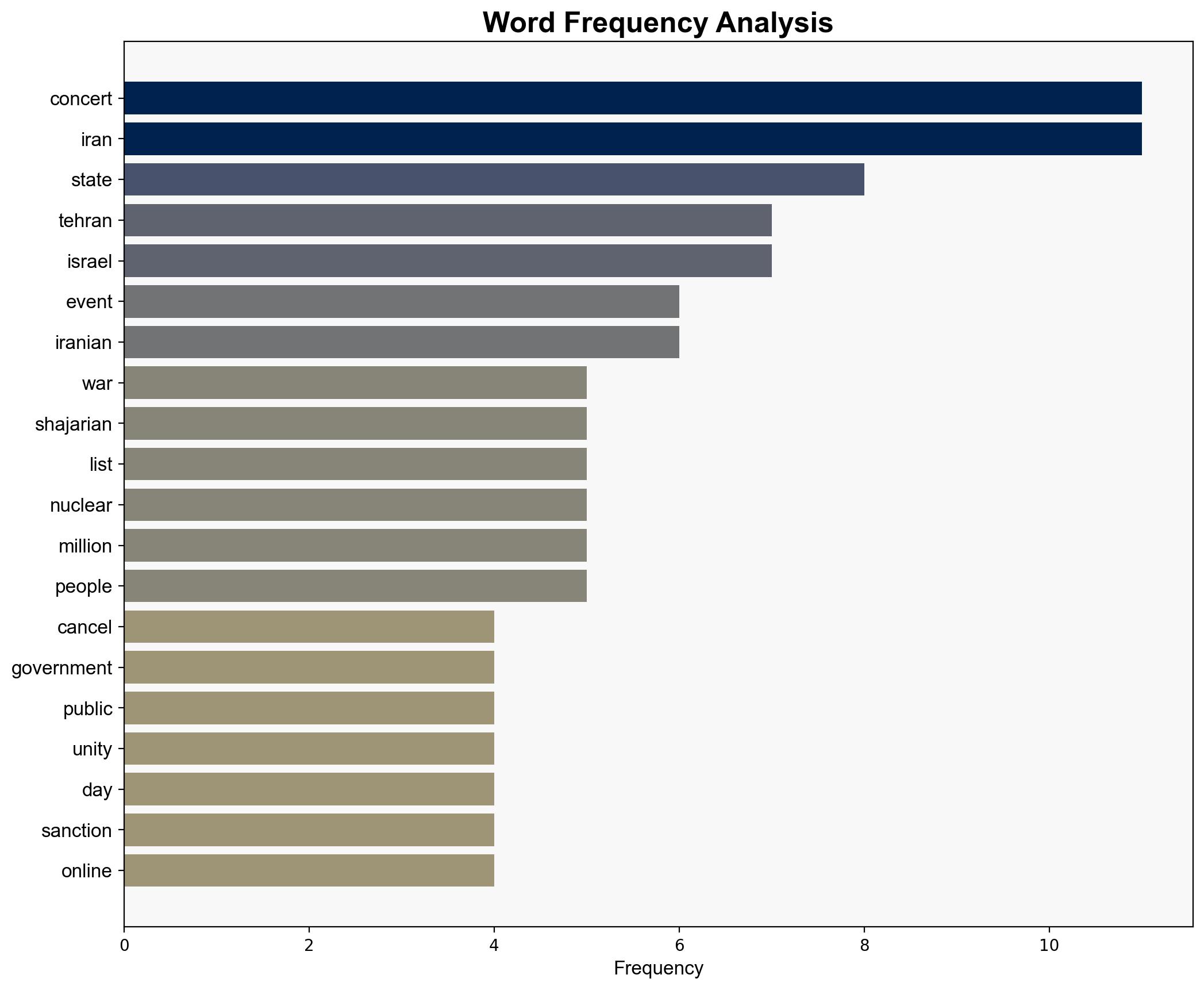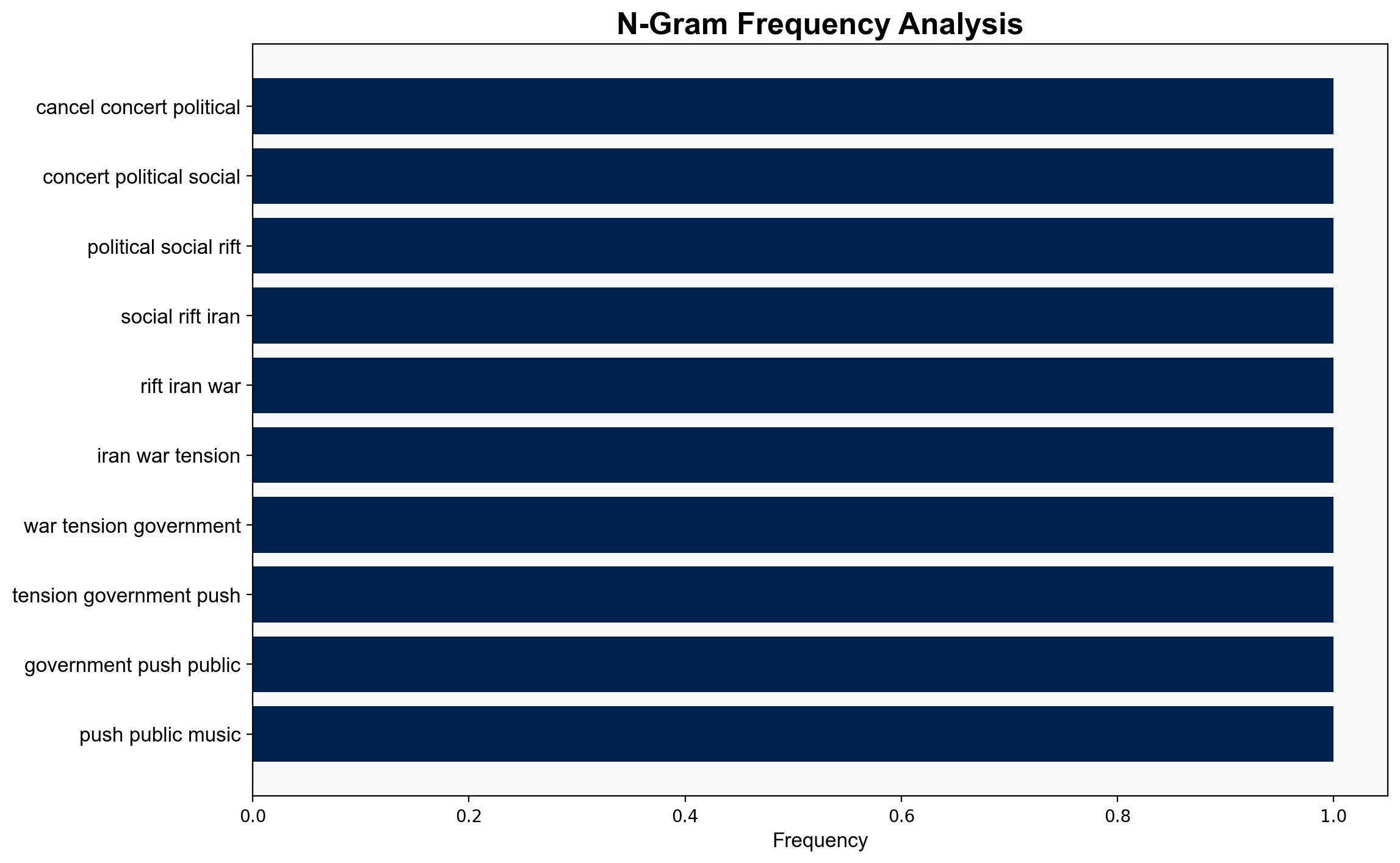Cancelled concert shows political social rifts in Iran amid war tensions – Al Jazeera English
Published on: 2025-09-06
Intelligence Report: Cancelled concert shows political social rifts in Iran amid war tensions – Al Jazeera English
1. BLUF (Bottom Line Up Front)
The cancellation of the concert in Tehran highlights significant political and social rifts within Iran, exacerbated by external pressures such as potential UN sanctions and regional tensions. The most supported hypothesis is that the cancellation was a strategic move by the Iranian government to prevent potential anti-government protests under the guise of a cultural event. Confidence level: Moderate. Recommended action: Monitor public sentiment and government actions for signs of escalating domestic unrest and potential international responses.
2. Competing Hypotheses
1. **Hypothesis A**: The concert was cancelled due to genuine logistical issues and lack of coordination among government officials.
– **Supporting Evidence**: Official explanations cite logistical failures and lack of crowd management planning.
– **Contradictory Evidence**: The timing and location suggest potential for large gatherings, which could be seen as a threat by the government.
2. **Hypothesis B**: The cancellation was a deliberate action by the government to prevent a large public gathering that could turn into an anti-government protest.
– **Supporting Evidence**: The concert’s cancellation aligns with heightened political tensions and the government’s history of suppressing large gatherings.
– **Contradictory Evidence**: Public statements from cultural officials and the artist suggest an apolitical intent for the event.
3. Key Assumptions and Red Flags
– **Assumptions**:
– Hypothesis A assumes that logistical failures are common and not politically motivated.
– Hypothesis B assumes the government perceives large gatherings as inherently risky during times of political tension.
– **Red Flags**:
– The sudden change in government stance despite prior approvals.
– The involvement of hardline figures in the narrative, suggesting potential political motivations.
– **Blind Spots**:
– Limited insight into internal government deliberations and decision-making processes.
4. Implications and Strategic Risks
The cancellation could exacerbate existing social and political divides, potentially leading to increased domestic unrest. This unrest could be further fueled by economic pressures, such as currency devaluation and international sanctions. Regionally, heightened tensions with Israel and the West could lead to further isolation and economic hardship, increasing the likelihood of internal dissent.
5. Recommendations and Outlook
- Monitor social media and local news for signs of public dissent and government response.
- Engage with regional allies to assess potential impacts of renewed sanctions on Iran’s domestic stability.
- Scenario Projections:
- Best Case: The government successfully manages public sentiment, preventing unrest.
- Worst Case: Large-scale protests emerge, leading to violent crackdowns and international condemnation.
- Most Likely: Sporadic protests occur, with the government employing a mix of concessions and repression.
6. Key Individuals and Entities
– Homayoun Shajarian: Iranian singer involved in the cancelled concert.
– Alireza Zakani: Mayor of Tehran, mentioned in the context of the event.
– Hamid Resaee: Hardline member of parliament, suggested government motives behind the cancellation.
7. Thematic Tags
national security threats, regional focus, political unrest, social dynamics





